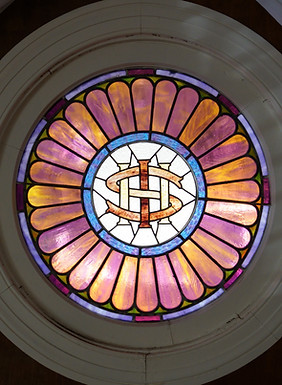Our History


Our
Story
A member church of The United Church of Christ, The First Congregational Church of Winter Park has played an important role in both the national history of Congregationalism and the local history of Winter Park. As one of the very first Congregational churches founded in the southern US, FCCWP was a groundbreaking effort to bring a religion with New England origins into the South after the Civil War. The Congregationalists saw the founding of a church in Winter Park as part of the larger effort to reconstruct the South, or in the words of Founding Minister, Rev. Edward P. Hooker, “to bring Christ to the South.”
Founded on February 17, 1884, FCCWP was the first church established in Winter Park less than three years after the founding of the little village itself. The members voted to build a church on New England Avenue on land donated by Oliver Chapman and Loring Chase, who were at the time developing the city. The church was officially dedicated on January 23, 1886 and Rev. Edward Payson Hooker, a descendant of Thomas Hooker, the founder of Connecticut, was called as its first pastor.
A year later, he was also named as the first president of Rollins College, a newly created Congregational school in Winter Park. Rev. Hooker’s service as both pastor of FCCWP and president of Rollins helped establish a close relationship between both institutions that exists to this day.
From its very beginnings, FCCWP has always believed in the priority of outreach into both the local community and the larger world. While it was building the church in 1885, FCCWP contributed funds and material to the construction of the African-American church in the Hannibal Square area of Winter Park. The congregation established a relationship with Eatonville and as early as the 1930’s FCCWP’s leadership showed an opposition to Florida’s segregation policies; ultimately leading to the KKK burning a cross on the parsonage lawn in the early 1950's in response to a sermon given by Dr. Schultz, Senior Minister at the time, making the case for desegregation in Florida. This heart of outreach continued through initiatives such as the Seminary for Black Ministers held at the church in the early 1970's and, for 18 years, the Jeremiah Project, which brought Middle Schoolers from area Boys and Girls clubs to the church to explore self-expression and affirmation through creative arts.
In 1954 the church established a Weekday Kindergarten, which then established itself in the current Education Building ten years later in 1964. This educational outreach to the Winter Park community became what is today the FCCWP Preschool and Kindergarten, a long-cherished and highly regarded Preschool in the city which still is giving our area young people a place of learning, compassion, and play. Learn more about our Preschool here.
In 1961, FCCWP developed the Plymouth Retirement Center “to provide a home… within financial reach” for Winter Park’’s older and more needy residents. This community service project was built and owned by the church and managed by a board of directors from FCCWP until 2008, when it was sold to the Winter Park Housing Authority.
The Mayflower Retirement Community was a vision by FCCWP church members in the mid 1970’s to provide an upscale living environment for retirees in our community that would include both independent living options as well as continuing health care. The commitment of these church members for the next decade led to the development and opening of the Mayflower in 1989, which is now one of the most highly rated retirement communities in the country.
Continuing its commitment to issues of social justice and equality, at a congregational meeting on November 21, 2010, FCCWP adopted a statement regarding its status as an “Open and Affirming” church, which is a status within the United Church of Christ that stands as “a designation for congregations, campus ministries, and other bodies in the UCC which make a public covenant of welcome into their full life and ministry to persons of all sexual orientations, gender identities, and gender expressions.”
The proud work of FCCWP continues today on the foundations of its origins to continue to be a church that seeks to be a vibrant and vital presence of God to Winter Park and to the world.
